By Linda Ash-Jackson, MD
Ambulatory surgery center credentialing poses unique challenges for both administration and surgeons. For administration, keeping up-to-date with ambulatory surgery center credentialing requirements for a revolving roster of surgeons is a never-ending task. Doctors and other health professionals who work out of multiple ASCs require individual credentialing for each location of care — and must stay current on the credentialing requirements of each location.
What Makes Credentialing at Ambulatory Surgery Centers a Challenge?
The dramatic increase in ASC growth has only added to ASC legal and regulatory issues. Increased credentialing applications tax a facility’s limited administrative resources, as more applications mean more time spent tracking and verifying licenses and education. The need to verify compliance with COVID-19 policies adds another layer to the credentialing process.
Common challenges to ASC provider credentialing include:
- Initial Credentialing: Healthcare professionals must meet credentials required by the state and the center’s accrediting body, which can have differing requirements. Surgeons working at multiple ASCs may need to meet the credentialing requirements of more than one accrediting body.
- Peer References: Practicing physicians work under tight schedules and prefer to be in the operating room rather than performing administrative tasks, including writing references for their peers. Securing peer references in a timely manner is a challenge for many ASC surgeons.
- Extended Work Histories: An experienced surgeon may have practiced at multiple hospitals and surgery centers. Verifying a complete work history can become time-consuming, especially if the surgeon worked at locations of care that have since closed.
- Re-evaluating Surgeons: ASC credentialing is not a one-time event. Surgeons must be re-evaluated every few years (the exact timing varies by state law). ACS administrators can speed up the process by keeping detailed records, but even so, surgeons working at multiple ASCs may find themselves constantly under evaluation by one center or the other.
3 Ways to Improve Credentialing at Ambulatory Surgery Centers
Ambulatory surgery center credentialing requirements need prompt and exacting attention to ensure surgeons have access to facilities and patients. The following suggestions can positively impact ambulatory surgery center quality:
1. Make Compliance More Portable
Surgeons who travel between locations of care to provide services need the portable compliance of the SEC³URE Passport, which gives subscribers trusted status at any of the 11,000 locations of care using the SEC³URE Ethos platform.
Portable compliance has significant advantages for ASC physicians, allowing them access to facilities much faster than the traditional credentialing process. During a time when staffing and consistency are a concern for many ASC leaders, there is a lot of value to be uncovered by streamlining the credentialing process, especially in the realm of revenue opportunities.
2. Accelerate Revenue by Digitizing the Credentialing Process
In addition to streamlining the ambulatory surgery center credentialing and scheduling process, digitized credentialing systems lead to an accelerated revenue stream by eliminating the typical manual steps that can bring operations to a crawl. The impact of digitalized credentialing systems on ASC revenues can be dramatic. With these capabilities, centers can grant providers access faster and take advantage of credential-integrated scheduling. At IntelliCentrics, we offer the only digitized credential that helps ASCs generate revenue by significantly reducing the window for onboarding physicians while expediting their time to revenue to days rather than months.
Improving the credentialing process through technology and growing the trust between all who make ASCs a fast-paced hub of healthcare unlocks the portability that provides freedom of movement while removing common hurdles such as staffing and scheduling.
3. Improve Patient Outcomes through Trust as a Technology
In a recent press release announcing that the Milestone Surgery Center is joining SEC³URE Ethos, Oscar A. Aguirre, MD, founder and medical director of the Milestone Surgery Center explains, "We are a new, first of its kind ambulatory surgery center in Colorado that provides high-quality surgical services for women's functional and aesthetic needs. To meet all of our patient's needs now, and in the future, we need to bring on trusted physicians quickly and efficiently,"
An essential element in any location of care is trust, and the capabilities provided by being part of the SEC³URE Ethos platform can be vital to cultivating trust from a holistic perspective. Patients must trust in the competency and skills of both physicians and care centers, while ASC leaders need to trust their staff and the systems they have in place to run such a critical location of care.
How We Approach Credentialing Requirements for Ambulatory Surgery Centers
Digitized services meet the unique demands of ambulatory surgery centers by streamlining the credentialing process and allowing surgeons to work out of multiple locations of care with ease.
Contact us for more information on how we can help you manage the credentialing demands at your ambulatory surgery center by utilizing SEC³URE Passport, and discover how digital credentialing accelerates your revenues while improving patient outcomes.
Dr. Linda Ash-Jackson is the chief medical officer at IntelliCentrics.




